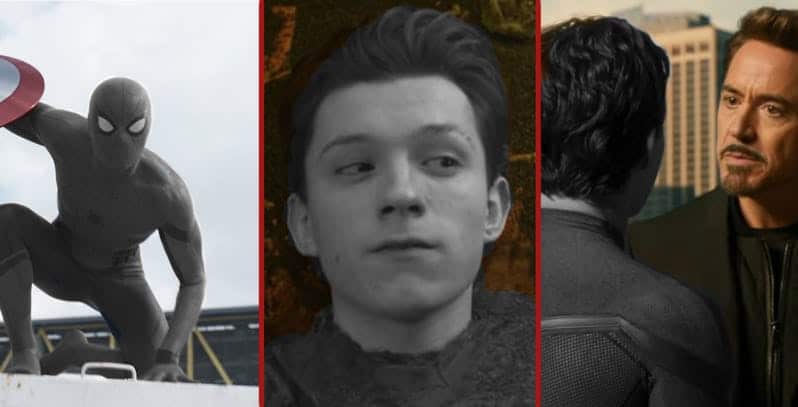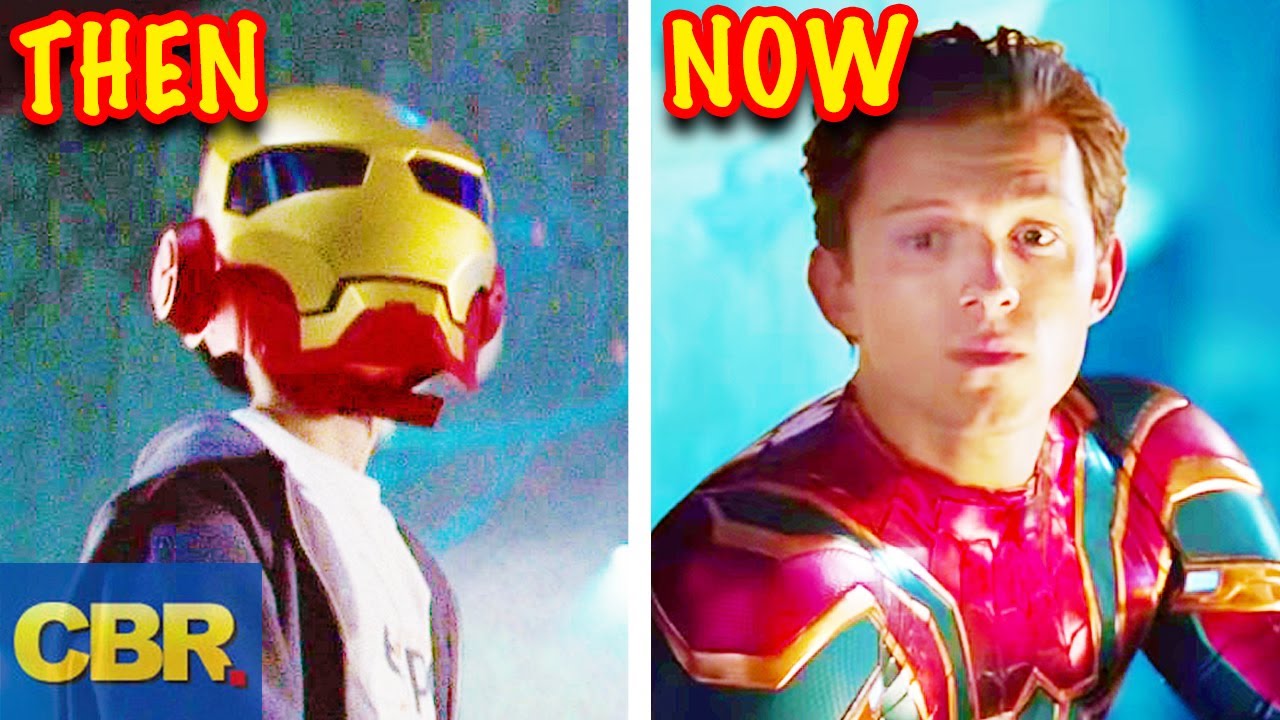How The MCU Would Look Without Spider-Man? Read On To Find Out
The Marvel Cinematic Universe is over a decade old, but one of its most important characters has only been around since 2016: the Spider-Man. First introduced in Captain America: Civil War, it’s difficult to overstate the impact Spidey has had on the MCU, and just how different the subsequent movies would look without him – especially the Avengers: Infinity War.
Tom Holland’s Spider-Man Has Settled In The MCU
The first two phases of the MCU existed without Marvel’s best-known superhero, due to the character’s movie rights belonging to the Sony thanks to Marvel’s financial difficulties back in the 1990s. However, with Sony struggling to launch their own new take on the web-slinger post-Sam Raimi’s trilogy, and the MCU becoming an increasingly dominant presence in cinemas, the two studios were able to cut a deal that allowed Spider-Man to appear in the MCU, while Sony kept the profits.
CIVIL WAR WOULD HAVE A DIFFERENT TONE, AND IRON MAN WOULD RECRUIT ANT-MAN
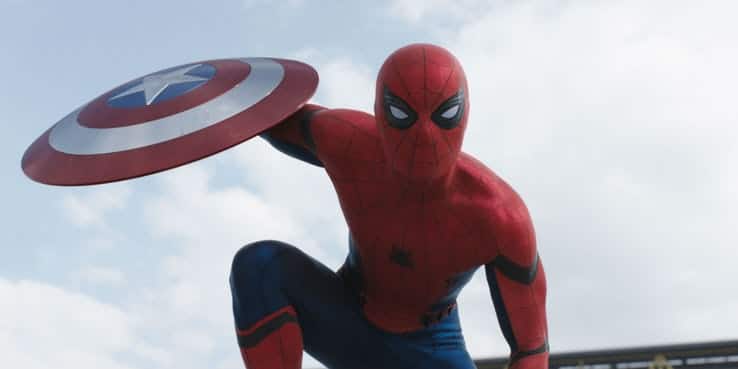
Spider-Man swung into the MCU in Captain America: Civil War, serving as Tony Stark’s trump card in the big airport showdown. The sight of him using his webbing to take Captain America’s shield is an iconic Marvel movie moment, while taking down Giant-Man a la “that really old movie” is one of the film’s best gags, but how much would be different if you take Spidey out of the equation?
In terms of the plot, not all that much. Writers Christopher Markus and Stephen McFeely have spoken about how they planned for the possibility of not having Spider-Man available, since negotiations were happening during the scripting stage, so they had a version without him in, where someone else would’ve taken his place on Team Iron Man. According to McFeely, that most likely would’ve been Ant-Man, which creates its own ripple effect: he ultimately sides with Team Cap, so there’s another spot that would need to be filled by a different hero, but it wouldn’t necessarily need to be a major role, so likely wouldn’t have been too difficult. Without Spider-Man, though, it’s likely the other big newcomer, Black Panther, would’ve been given even more screentime as well.
Another difference in Civil War would be the tone of that middle section. Spider-Man, by the very nature of the character (especially such a young vesion as this) brings a lot of levity and lightheartedness to the proceedings. Ant-Man does a lot of the comedic work too, but without Spider-Man there on the other side it’d lose some of the balance that made it such a great sequence.
NO HOMECOMING MEANS NOT SEEING TONY STARK UNTIL INFINITY WAR
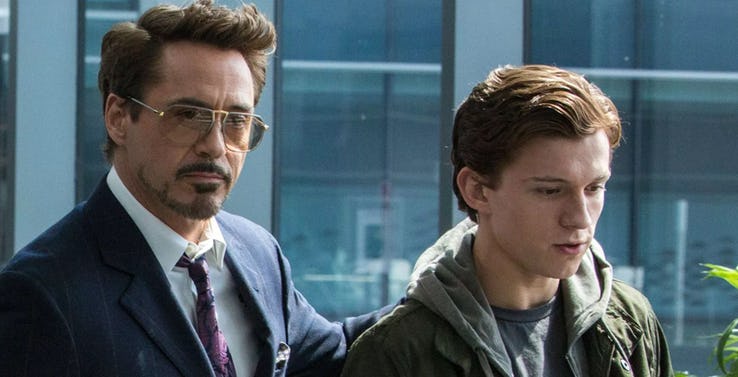
After his introduction in Captain America: Civil War, it wasn’t long before Spider-Man was getting his own MCU-set solo movie, Spider-Man: Homecoming. Arriving just over a year later, it had an effect not only on the MCU in-universe, but also its release schedule too.
Thanks to Spidey’s arrival proper being planned for July 2017, Thor 3, which became Thor: Ragnarok, was pushed back to the November slot previously slated for Black Panther. That, in turn, was pushed back to July 2018, before settling into its February spot. Captain Marvel was also pushed back because of this – and the subsequent addition of Ant-Man and the Wasp – meaning three huge Marvel movies moved to accommodate Spider-Man. Those films likely would’ve still been successful, but it’s undeniable that the release spots helped boost those film’s box-office hauls: Ragnarok avoided going head-to-head with Sony’s Spider-Man, Black Panther had Black History Month and the direct lead-in to Infinity War, and Captain Marvel hit on International Women’s Day, while also being the lead into Avengers: Endgame.
Even more pertinent, though, is the impact Spider-Man has on Tony Stark. While that relationship with founded in Civil War, it’s in Homecoming that it’s truly built upon. Here, Tony really becomes like a father figure to Peter Parker, and their emotional bond is forged in, er, iron. Not only that, but it keeps Tony’s story moving forward. Without this, the story goes from the end of Captain America: Civil War, with a beaten and broken Tony, to Avengers: Infinity War, where Tony is ready to take the fight to Thanos. Again, it’s not impossible to pull off, but Spider-Man: Homecoming serves as a great bridge between those two for his arc, and an important launchpad for what happens later.
TONY’S INFINITY WAR ARC WOULD BE VERY DIFFERENT – AND WORSE
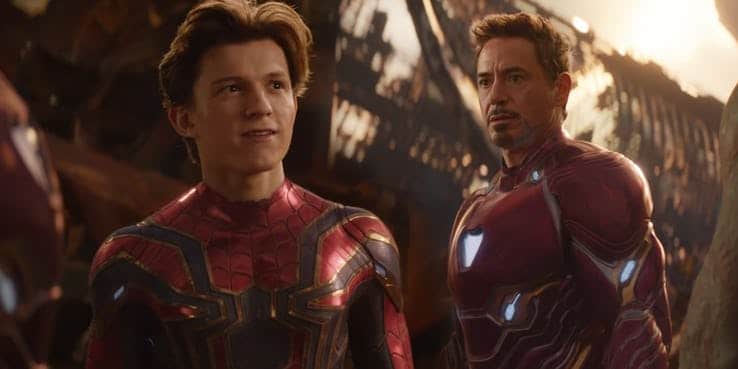
It’s hard to imagine Infinity War without Spider-Man. While the plot could work without him – there are plenty of other heroes, after all – his relationship with Tony is key to Iron Man’s journey through the film, which is, alongside Thanos, crucial to its success. If we were simply picking things up after Captain America: Civil War, then it wouldn’t have quite the same grounding in terms of what Tony is fighting for, nor would the stakes be quite so personal for him.
Father figures have played a major part in the MCU, including Tony’s own dad, Howard Stark. While Tony’s story had been great up until this point, especially through his PTSD, that was something it hadn’t been able to fully explore with him in the father role, until Peter came along. It adds a whole new depth to his character. Tony’s arc from Civil War to Endgame is one defined by fatherhood. Between the broken relationship with his own dad, and then becoming a father for real with Morgan, there’s being a mentor/surrogate father to Spider-Man, who serves as the glue – or webbing – that holds all of this together. That’s especially prevalent in Avengers: Infinity War, where the pair fight side-by-side, and then Tony has to watch his “son” die in his arms. It’s one of the MCU’s most devastating moments (even knowing Spider-Man will return), and sets the stage for Tony’s actions in Endgame. Without Spider-Man, Tony simply goes to fight Thanos in space and gets beat, without any of the emotional weight that makes it so great.
THE EMOTIONAL IMPACT OF TONY’S ENDGAME DEATH IS LESSENED
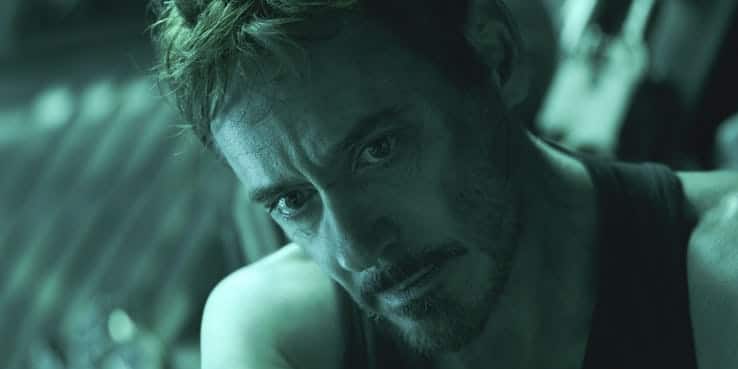
The loss of Peter Parker gives Tony Stark the drive he needs in Avengers: Endgame. He’s always been prepared to defend Earth, but losing Spider-Man gives him a personal investment in the fight, and a deep-seated need to avenge what happened. But it’s also why Tony is so reluctant to rejoin the fight after the time jump too. He now has a daughter of his own, and he knows what it feels like to lose a child. The specter of Spider-Man looms over his relationship with Morgan, but ultimately, is why he has to come back into the fold.
That, of course, leads to Iron Man donning the new Infinity Gauntlet and reversing the Snap. It costs him his life, but he’s already had the chance to see Peter come back from the dead, making it all worthwhile. He hugs him in that moment, much like a father would a son. Morgan isn’t there for Tony’s death, but Peter is, which further highlights how important that relationship is. Spider-Man is only in four MCU films with Iron Man, but the final arc of Tony Stark hinges almost entirely on him being there. Take that away, and you can still have moments like “I love you 3000“, but so much of the emotional impact disappears like Thanos clicking his fingers.
WHAT WOULD NO SPIDER-MAN MEAN FOR PHASE 4 & IRON MAN’S LEGACY?
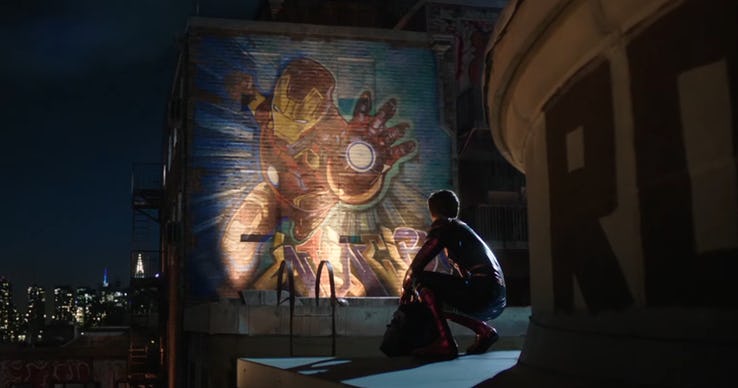
Post-Avengers: Endgame, Spider-Man is perhaps even more important than ever. With headline acts Iron Man and Captain America gone, he’s not only one of the MCU’s best-established heroes, but also one of its most marketable. Without him the future isn’t exactly bleak – there’s still Black Panther, Captain Marvel, and many others around – but Spider-Man has an incredibly broad appeal, and brings something unique thanks to his age, humor, and emotional relationships.
Far From Home will end Phase 3, and in doing so it’ll need to honor Tony Stark’s legacy. That’s fitting, because it was Iron Man who started it all, and having Spidey here allows the MCU to fully pay respect to what’s come before while setting up the future too – something no other MCU solo movie could achieve in quite the same way, because they lack that intrinsic link to Tony, who’ll loom over Far From Home.
Spider-Man can not only do that at the end of Phase 3, but carry it forward into MCU Phase 4. As Iron Man’s mentee, he’s well-placed to carry forward Tony’s entire ethos and vision into the future, which will be important in the still-to-come Spider-Man 3, and whatever form the Avengers ends up taking in the MCU‘s future too.
KEY RELEASE DATES
- Spider-Man: Far From Home (2019) release date: Jul 02, 2019
Source: screenrant , looper

